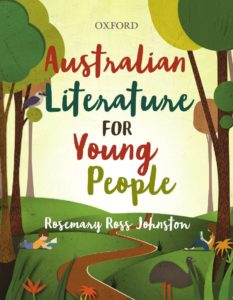Writing consists of marks of what we call language on a page: in the English language these marks consist of only 26 letters – ABCDEFGHIJKLMNOPQRSTUVWXYZ – and punctuation protocols (such as commas, full stops, question marks and so on).
Reading makes sense of those marks of language: it creates mind-pictures of characters and what they look like; of places, time and events; of voices and sounds; and of touch and smell. The reading of writing is a sort of magic: there is no soundtrack, although we hear sounds; there is no image on a screen, although we see mental images.
Writing, and the reading of writing, create the powerful spell of story. Stories model, inspire and teach language. Books offer one of the most significant and accessible ways of introducing children to language through the multiple modes of story. Because books are read to very young children, children become aware that print mark and sounds match in some way so as to express meaning; they become aware of what sentences sound like and the coherence of narrative.
Books are part of national and social cultures and are profoundly influenced by the worlds that produce them. Through books young people learn, both explicitly and implicitly, about those worlds and about how stories and language not only form part of worlds but help construct them. Through books children learn about worlds other than their own and how such worlds may have not only different languages, but also different ways of telling and different ways of reading.
Books reveal how ideas and motivations and values and attitudes – both of wider worlds and of the personal worlds of authors – can influence the telling of story and the language choices that are made in the telling. Similarly, through reading books children learn how both wider worlds and the personal worlds of readers can influence how books are read, interpreted and remembered. Through books they are exposed to and learn, again both implicitly and explicitly, how simple narratives – amazingly carried through those black marks on pages – can almost magically convey character and event, time and place, sometimes specifically, sometimes in more universal and folkloric ‘Once upon a times’.
Because of their accessibility, because they can be read both collaboratively and individually, because pages can be turned and returned to at will (or scrolled and rescrolled – books can be read in many formats) and most of all because of the enchantment of language turned into story, books provide both the means and the motivation to lead young people into understandings of how language works and how it can be made to serve particular audiences and particular purposes. This has implications far beyond the literary and the aesthetic, as important and life-enhancing as both of these are. Through developing understandings of how plot and event are given sequence and attributed meaning, young people learn that not all language is reliable, not all sequences are necessarily accurate or exclusive, and that there may be other ways not only of telling story but also of interpreting story.
In other words, children learn that not all stories should be read at face value, language can manipulate in many ways, and all language and stories emerge from certain ideas and intentions (to tell, to argue, to describe, to persuade, to question). Discernment of these is a lifelong critical and evaluative skill, in relation not only to literature but also to the modes of multimedia, including film, advertising, real estate and political discourse.
In a world where the Oxford Dictionaries 2016 Word of the Year is ‘post-truth’, it has never been more important for young people to learn discernment. As Nietzsche writes at the end of his book On the Genealogy of Morality (1887):
The more eyes, different eyes, we know how to bring to bear on one and the same matter, that much more complete will our ‘concept’ of this matter, our ‘objectivity’ be.
An extract from Australian Literature for Young People by Rosemary Ross Johnston, which has been nominated for a prestigious Council for the Humanities, Arts and Social Sciences (CHASS) prize.


Leave a Reply